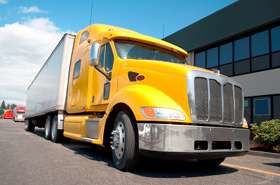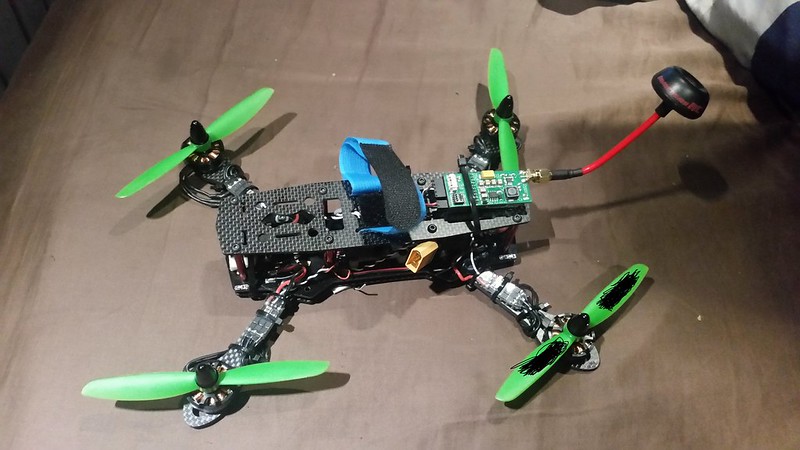Does Having An APU/EPU Really Matter?
Topic 12170 | Page 4

LittleTrucker, I don't want to hijack this thread any more than it is, so look for a new thread posting from me. "Swift: fighting for idling time"
OK got it. thank you.

Are you freezing because The Grey Dog ate your luggage? Did I read that other thread right? How frustrating. I'm sorry.
That was a hilarious way to put it. But no its not that. I took my sleeping bag as a carry on thank God. I also was wearing sweats when I boarded the bus (insert another thank God). We have been in places where it's been raining and sleeting. I've been cold without the truck running the heat. I guess if I had my clothes I could double up but ultimately the Greyhound situation is completely separate.

So from what I understand by reading the posts in this thread, idling one's truck consumes fuel and battery power, as well as additional wear on the truck. I have learned that idling one's truck cuts out a potential fuel bonus one might otherwise receive, a loss amounting in a few thousand dollars a year in potential income. Lastly, I have learned that trucks with APUs do not draw from the fuel or power source on a truck when one idles, saving their company money and earning themselves the aforementioned bonus.
Forgive me as I still have yet to attend trucking school, have yet to drive professionally for anyone, and only drive for recreation or a means to get to where I need to be that is out of walking distance. But I must ask this. Is there a way to cut down on a truck's energy consumption outside of the ways that I already know of (buying cheaper gas, and picking the shortest route) so that one may receive the fuel and energy saving bonus while not sacrificing one's own comfort?
I am also assuming that one needs to idle one's truck in order to run any appliances (refrigerator, microwave, blender, etc.) I am also aware that preparing one's own food is usually cheaper, saving both time and money. If one wishes to maintain the fuel bonus, one might not be able to keep perishable food inside one's vehicle, lest it spoil. Unless there is another way to power said appliances (like maybe a generator). But even those consume one's own money to buy and repair, take up space in an already cramped environment, and require charging in order to keep generating power. If one keeps to eating only dry or canned foods, I suppose one could make do. One would have to idle just enough to cook one's food, but not idle the whole time as needed when keeping perishable foods in the refrigerator. This would also mean one needs to buy ice and keep it in a cooler of one desires cold beverages (I heard dry ice can help keep beverages cold as well.)
So I suppose what I am trying to get at is this. For those who are able to get their full gas and energy saving bonus and do not have an APU installed on their trucks, how do they manage? I would like to learn as much as I can about saving energy now, so I may maximize my earning potential later. As always, thank you all in advance for any thoughts or replies. They are greatly appreciated.
HOS:
Hours Of Service
HOS refers to the logbook hours of service regulations.APU:
Auxiliary Power Unit
On tractor trailers, and APU is a small diesel engine that powers a heat and air conditioning unit while charging the truck's main batteries at the same time. This allows the driver to remain comfortable in the cab and have access to electric power without running the main truck engine.
Having an APU helps save money in fuel costs and saves wear and tear on the main engine, though they tend to be expensive to install and maintain. Therefore only a very small percentage of the trucks on the road today come equipped with an APU.

APUs:
Auxiliary Power Unit
On tractor trailers, and APU is a small diesel engine that powers a heat and air conditioning unit while charging the truck's main batteries at the same time. This allows the driver to remain comfortable in the cab and have access to electric power without running the main truck engine.
Having an APU helps save money in fuel costs and saves wear and tear on the main engine, though they tend to be expensive to install and maintain. Therefore only a very small percentage of the trucks on the road today come equipped with an APU.


Travis you can do certain things without idling since the inverter is connected to the trucks battery, but it can be taxing on the electrical system if it is a high power device. Running a high power microwave for example will take a nice chunk out of the batteries power, and so it's better to idle while using these. I have a desktop computer in my truck and i'm able to play for several hours before being required to idle because A, the battery is getting to low, B when i do crank, if i let the voltage get to low, the inverter will be starved on power and it will kill power to the computer.

Brett, your number is a little far off. Idling a truck for one hour uses approximately 1 gallon of fuel. At a cost of $2 per gallon that is $20 per night and $100 over 5 days. Multiply that by the number of trucks, say 200 trucks and you have $20,000 per week or $1,040,000 per year.
What does Swift have like 16k trucks? At $100 per truck per week that comes to $83,000,000 if every truck in the fleet were to idle for 10 hours, 5 nights per week.
When you do the math you can see why carriers do not like idling.
If you were to do the same math with an APU that uses 1/4 gallon per hour that is 2.5 gallons per night or $5 and that would equate to $25 per week running 5 nights per week. So for a 200 truck operation that would come out to $5,000 per week or $260,000 per year. That is a savings of $780,000 per year. Or the cost of 5 new trucks.
With someone like Swift that brings the cost down to $20,750,000 for a savings of $62,250,000 per year.
Now not everyone on here is capable of running a trucking business but even they can see the cost savings of having an APU over not having one.
Real numbers and savings are not going to come out like my example because you do not need either at certain times of the year and not all trucks are going to idle 10 hours a night 5 days a week but you can still see that there is a significant cost benefit of having an APU over not having one.
I have not researched the fuel usage for bunk heaters but I believe it to be lower than the APU. If that is the case then there may be the happy medium. With the cost of the APU running around $10,000 per unit the company would have to keep the truck more than 3 years to recoup the additional cost of the APU over the fuel costs for not having one. Add to that the cost of maintaining the APU and it may not be cost effective and increase down time for repairs. It is not just the cost of the repairs that need to be considered, but also the cost of the down time due to lost revenue.
So, if it were my company, I would order the truck with a bunk heater and no APU. Idle the truck during the 2 months that we have really hot weather and run a fan or bunk heater the rest of the year.
APU:
Auxiliary Power Unit
On tractor trailers, and APU is a small diesel engine that powers a heat and air conditioning unit while charging the truck's main batteries at the same time. This allows the driver to remain comfortable in the cab and have access to electric power without running the main truck engine.
Having an APU helps save money in fuel costs and saves wear and tear on the main engine, though they tend to be expensive to install and maintain. Therefore only a very small percentage of the trucks on the road today come equipped with an APU.


I am only considering companies with APU's. I have pretty severe asthma, and between being sensitive to heat & humidity in the summer, as well as allergies, I never open my windows or turn off the air conditioning in either my vehicle or my house. I can handle cold, but I'm taking my 3lb. chihuahua with me on the road, so creature comforts will be important to me. Also, I'm going to be spending a majority of my time on the road, and I want that time to be comfortable. Something where I can keep my cab temp at around 65 - 67 degrees year round is important enough to me to forego any fuel bonus I might receive. I get it that the exact range might not always be possible, but if I can get close then I'll be able to sleep during the night.
APU:
Auxiliary Power Unit
On tractor trailers, and APU is a small diesel engine that powers a heat and air conditioning unit while charging the truck's main batteries at the same time. This allows the driver to remain comfortable in the cab and have access to electric power without running the main truck engine.
Having an APU helps save money in fuel costs and saves wear and tear on the main engine, though they tend to be expensive to install and maintain. Therefore only a very small percentage of the trucks on the road today come equipped with an APU.

APU's:
Auxiliary Power Unit
On tractor trailers, and APU is a small diesel engine that powers a heat and air conditioning unit while charging the truck's main batteries at the same time. This allows the driver to remain comfortable in the cab and have access to electric power without running the main truck engine.
Having an APU helps save money in fuel costs and saves wear and tear on the main engine, though they tend to be expensive to install and maintain. Therefore only a very small percentage of the trucks on the road today come equipped with an APU.

I am slightly surprised that this conversation took place without anyone considering the consequences of an emissions truck idling throughout the night daily. I recall one comment mentioning the issue of constant regens, but it was basically ignored.
Travis, this discussion took place about 5 years ago. A lot has changed since then as carriers get with the emission issue. Now I rarely see a truck idling for very long.
Travis, this discussion took place about 5 years ago. A lot has changed since then as carriers get with the emission issue. Now I rarely see a truck idling for very long.
That's funny because I see and hear lots of trucks idling all the time. The old long nose Kenworth beside me has been idling for at least 8 hours now that I've been here.
Travis K., do you run the AC or heat at your house? These trucks are no different. Given a choice of trying to sleep in a truck when its 95° outside in summer or 25° in the winter...are you thinking about your own comfort or emissions? I don't give two sheets about the emissions when my comfort is at stake. I have an EPU as well as an Espar bunk heater in my truck but you can bet the farm, if I didn't have them I'd be idling away. Why do people care more about emissions from clean idling diesel trucks than they do about the human being inside the truck thats idling?
EPU:
Electric Auxiliary Power Units
Electric APUs have started gaining acceptance. These electric APUs use battery packs instead of the diesel engine on traditional APUs as a source of power. The APU's battery pack is charged when the truck is in motion. When the truck is idle, the stored energy in the battery pack is then used to power an air conditioner, heater, and other devices
New Reply:
New! Check out our help videos for a better understanding of our forum features

















Preview:
This topic has the following tags:
Choosing A Trucking Company Dealing With The Weather Idling Laws Life On The Road Truck Equipment







 TT On Facebook
TT On Facebook
LittleTrucker, I don't want to hijack this thread any more than it is, so look for a new thread posting from me. "Swift: fighting for idling time"